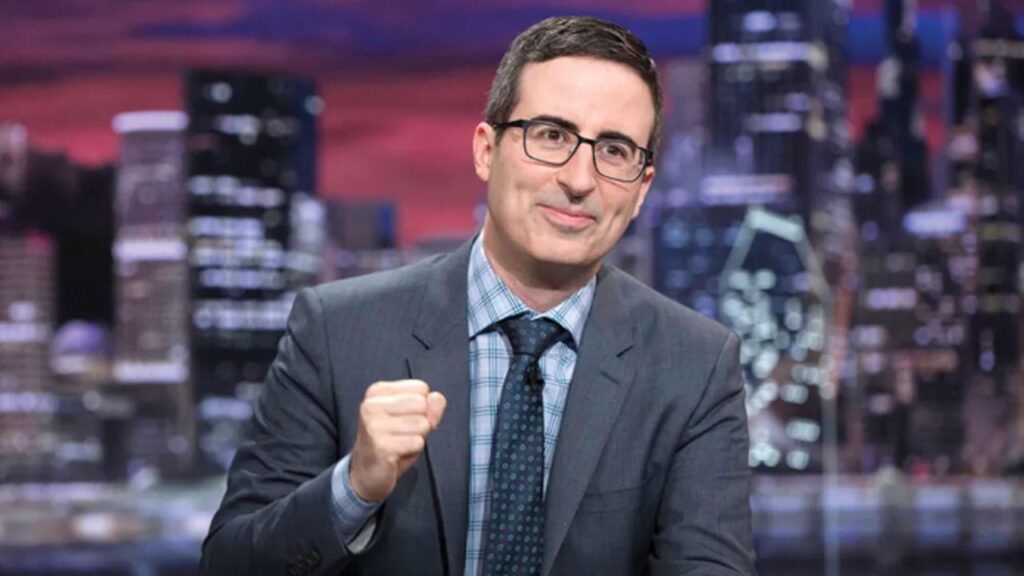John Oliver isn’t just your average late-night host, he’s a British-born, Emmy-hoarding, policy-changing force of nature who somehow makes deep dives into net neutrality and tax loopholes both hilarious and must-watch TV. As of 2025, his net worth sits at a cool $80 million, a number that reflects not just his HBO paycheck but his knack for turning sharp comedy into real-world influence (and real-world dollars).
Oliver’s journey from a Cambridge Footlights comedian to one of the highest-paid satirists on TV is a masterclass in blending wit with work ethic. After cutting his teeth on The Daily Show as Jon Stewart’s snarky British correspondent, he spun that gig into Last Week Tonight, a show that redefined what late-night TV could do. Instead of celebrity interviews and monologues, Oliver serves up meticulously researched 20-minute rants that have, on multiple occasions, literally changed laws. That’s not just good comedy, it’s good business. HBO pays him $30 million a year to keep doing it, and given the show’s cultural footprint, they’re probably getting a bargain.
You Might Like: John Oliver’s Wife: All About Kate Norley (Republican) and Wanda Jo
But Oliver’s wealth isn’t just about salary. He’s smart with his money, investing in real estate (like that $10 million NYC penthouse with Hudson River views) and leveraging his voice-acting side hustles (The Lion King, The Smurfs) to pad his bank account. Then there’s the “John Oliver Effect”—the phenomenon where his segments spark public outrage, FCC complaints, or even legislative action. That kind of influence doesn’t just win Peabody Awards; it cements his value as a brand.
Breaking Down the $80 Million: Where the Money Comes From
Let’s talk numbers. Oliver’s $30 million annual salary from Last Week Tonight is the backbone of his net worth, but it wasn’t always this lucrative. His first HBO deal in 2014 paid him $8 million a year. By 2017, he’d renegotiated to $15 million, and by 2020, he hit the $30 million mark—a testament to the show’s skyrocketing success. For context, that’s $1 million per episode, a figure most comedians only dream of.
Beyond HBO, Oliver’s Daily Show days laid the financial groundwork. He wasn’t just a correspondent; he was a writer on nearly 1,000 episodes, earning three Emmys for his work. Then there’s his voice-acting résumé (Bob’s Burgers, Rick and Morty), film cameos, and even a bizarrely successful podcast (The Bugle), all of which added to his earnings over the years.
But here’s the kicker: Oliver’s wealth isn’t just about accumulating cash. He’s famously critical of wealth inequality (irony noted) and has put his money where his mouth is. In 2016, he bought and forgave $15 million in medical debt for just $60,000, a stunt that was equal parts hilarious and humanitarian. He’s also called out tax loopholes, while admittedly using one to save on his NYC penthouse’s property taxes. Hey, even satirists appreciate a good deduction.
The Future of Oliver’s Fortune: What’s Next?
At 48, Oliver shows no signs of slowing down. His latest HBO contract runs through 2027, locking in that $30 million salary for the foreseeable future. But what’s fascinating is how he’s expanded beyond TV. His segments routinely go viral, racking up tens of millions of views on YouTube, which translates to ad revenue and cultural clout. Then there’s his production company, which executive produces documentaries and other projects, adding yet another revenue stream.
Oliver’s net worth isn’t just a number, it’s a reflection of a career built on being funny, fearless, and unapologetically thorough. Whether he’s dissecting corporate greed or dunking on politicians, he’s turned satire into a lucrative art form. And with Last Week Tonight still dominating the cultural conversation, that $80 million is likely just the beginning. After all, when your comedy can move markets and change laws, you’re not just a comedian, you’re a one-man industry.
Also See: What Is Jaimie Alexander’s Net Worth (2025), and Salary Per Episode on Blindspot?
So here’s to John Oliver: the man who proved that making people laugh and making a fortune aren’t mutually exclusive. And if he ever runs out of material, he can always just read his own bank statements.

